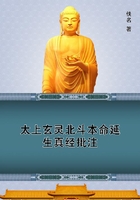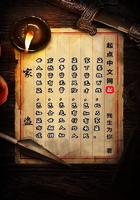The Jesuit was obliged to make all natural ties subordinate to the will of the General. And this General was a king more absolute than any worldly monarch, because he reigned over the minds of his subjects. His kingdom was an imperium in imperio; he was chosen for life and was responsible to no one, although he ruled for the benefit of the Catholic Church. In one sense a General of the Jesuits resembled the prime minister of an absolute monarch,--say such a man as Richelieu, with unfettered power in the cause of absolutism; and he ruled like Richelieu, through his spies, making his subordinates tools and instruments. The General appointed the presidents of colleges and of the religious houses; he admitted or dismissed, dispensed or punished, at his pleasure. There was no complaint; all obeyed his orders, and saw in him the representative of Divine Providence. Complaint was sin; resistance was ruin. It is hard for us to understand how any man could be brought voluntarily to submit to such a despotism. But the novice entering the order had to go through terrible discipline,--to be a servant, anything; to live according to rigid rules, so that his spirit was broken by mechanical duties. He had to learn the virtues of obedience before he could be fully enrolled in the Society. He was drilled for years by spiritual sergeants more rigorously than a soldier in Napoleon's army: hence the efficiency of the body; it was a spiritual army of the highest disciplined troops. Loyola had been a soldier; he knew what military discipline could do,--how impotent an army is without it, what an awful power it is with discipline, and the severer the better. The best soldier of a modern army is he who has become an unconscious piece of machinery;and it was this unreflecting, unconditional obedience which made the Society so efficient, and the General himself, who controlled it, such an awful power for good or for evil. I am only speaking of the organization, the machinery, the regime, of the Jesuits, not of their character, not of their virtues or vices. This organization is to be spoken of as we speak of the discipline of an army,--wise or unwise, as it reached its end. The original aim of the Jesuits was the restoration of the Papal Church to its ancient power; and for one hundred years, as I think, the restoration of morals, higher education, greater zeal in preaching: in short, a reformation within the Church. Jesuitism was, of course, opposed to Protestantism; it hated the Protestants; it hated their religions creed and their emancipating and progressive spirit; it hated religious liberty.
I need not dwell on other things which made this religious order so successful,--not merely their virtues and their mechanism, but their adaptation to the changing spirit of the times. They threw away the old dresses of monastic life; they quitted the cloister and places of meditation; they were preachers as well as scholars;they accommodated themselves to the circumstances of the times;they wore the ordinary dress of gentlemen; they remained men of the world, of fine manners and cultivated speech; there was nothing ascetic or repulsive about them, out in the world; they were all things to all men, like politicians, in order to accomplish their ends; they never were lazy, or profligate or luxurious. If their Order became enriched, they as individuals remained poor. The inferior members were not even ambitious; like good soldiers, they thought of nothing but the work assigned to them. Their pride and glory were the prosperity of their Order,--an intense esprit de corps, never equalled by any body of men. This, of course, while it gave them efficiency, made them narrow. They could see the needle on the barn-door,--they could not see the door itself.
Hence there could be no agreement with them, no argument with them, except on ordinary matters; they were as zealous as Saul, seeking to make proselytes. They yielded nothing except in order to win;they never compromised their Order in their cause. Their fidelity to their head was marvellous; and so long as they confined themselves to the work of making people better, I think they deserved praise. I do not like their military organization, but Ishould have no more right to abuse it than the organization of some Protestant sects. That is a matter of government; all sects and all parties, Catholic and Protestant, have a right to choose their own government to carry out their ends, even as military generals have a right to organize their forces in their own way. The history of the Jesuits shows this,--that an organization of forces, or what we call discipline or government, is a great thing. Achurch without a government is a poor affair, so far as efficiency is concerned. All churches have something to learn from the Jesuits in the way of discipline. John Wesley learned something;the Independents learned very little.
But there is another side to the Jesuits. We have seen why they succeeded; we have to inquire how they failed. If history speaks of the virtues of the early members, and the wonderful mechanism of their Order, and their great success in consequence, it also speaks of the errors they committed, by which they lost the confidence they had gained. From being the most popular of all the adherents of the papal power, and of the ideas of the Dark Ages, they became the most unpopular; they became so odious that the Pope was obliged, by the pressure of public opinion and of the Bourbon courts of Europe, to suppress their Order. The fall of the Jesuits was as significant as their rise. I need not dwell on that fall, which is one of the best known facts of history.
Why did the Jesuits become unpopular and lose their influence?















